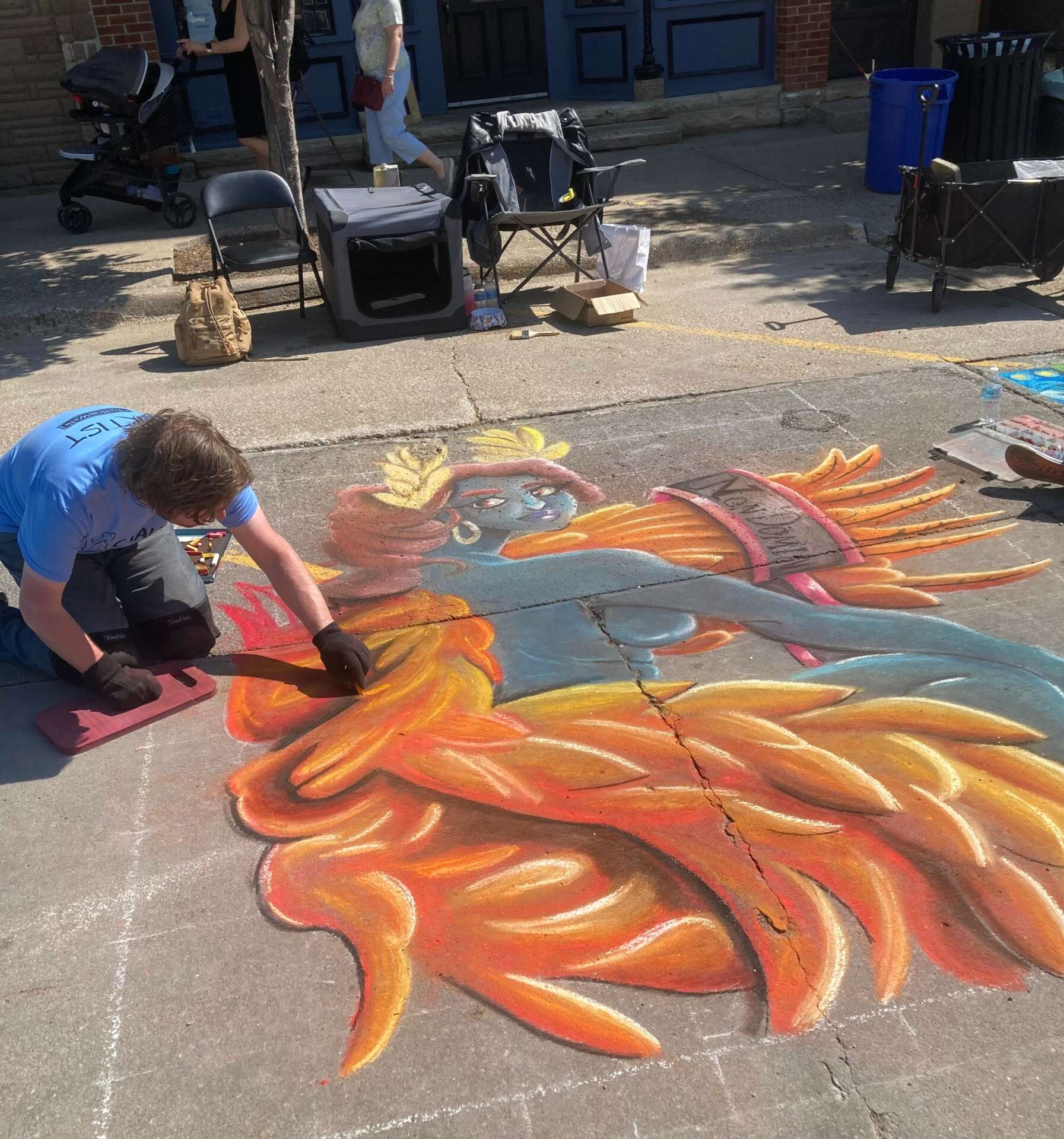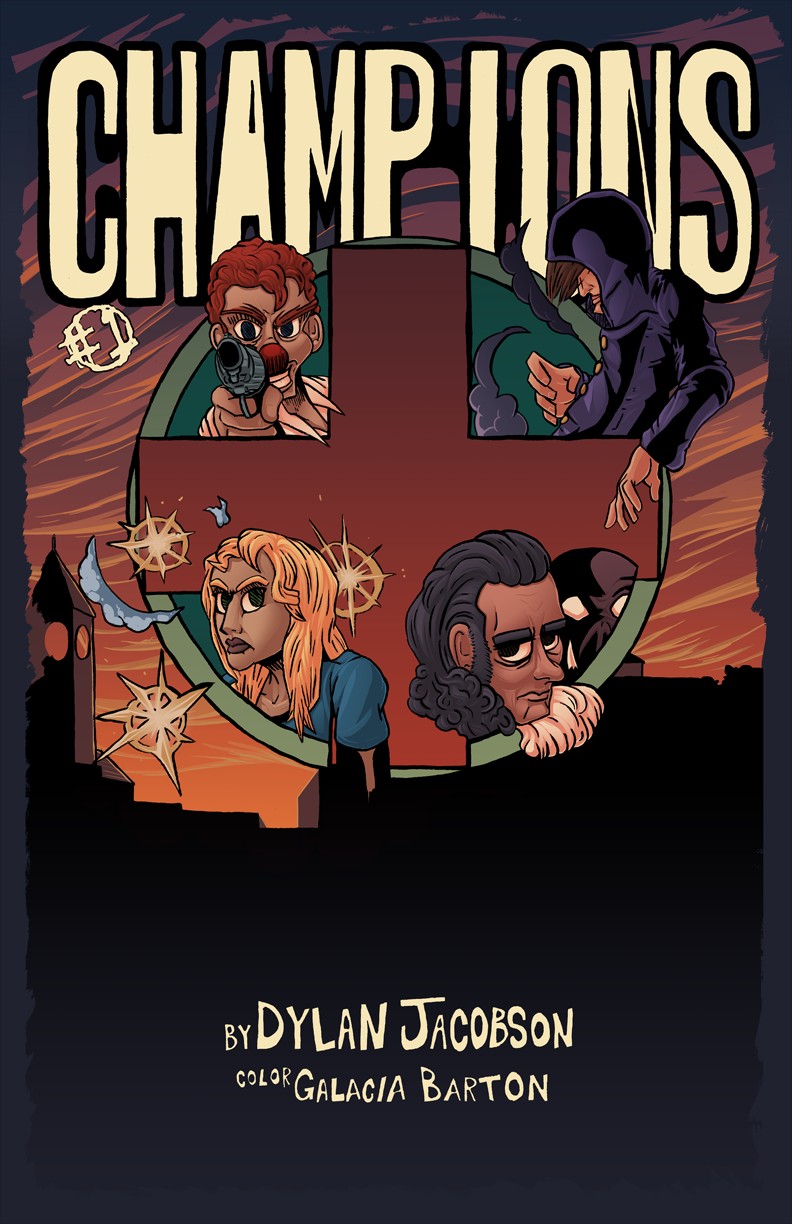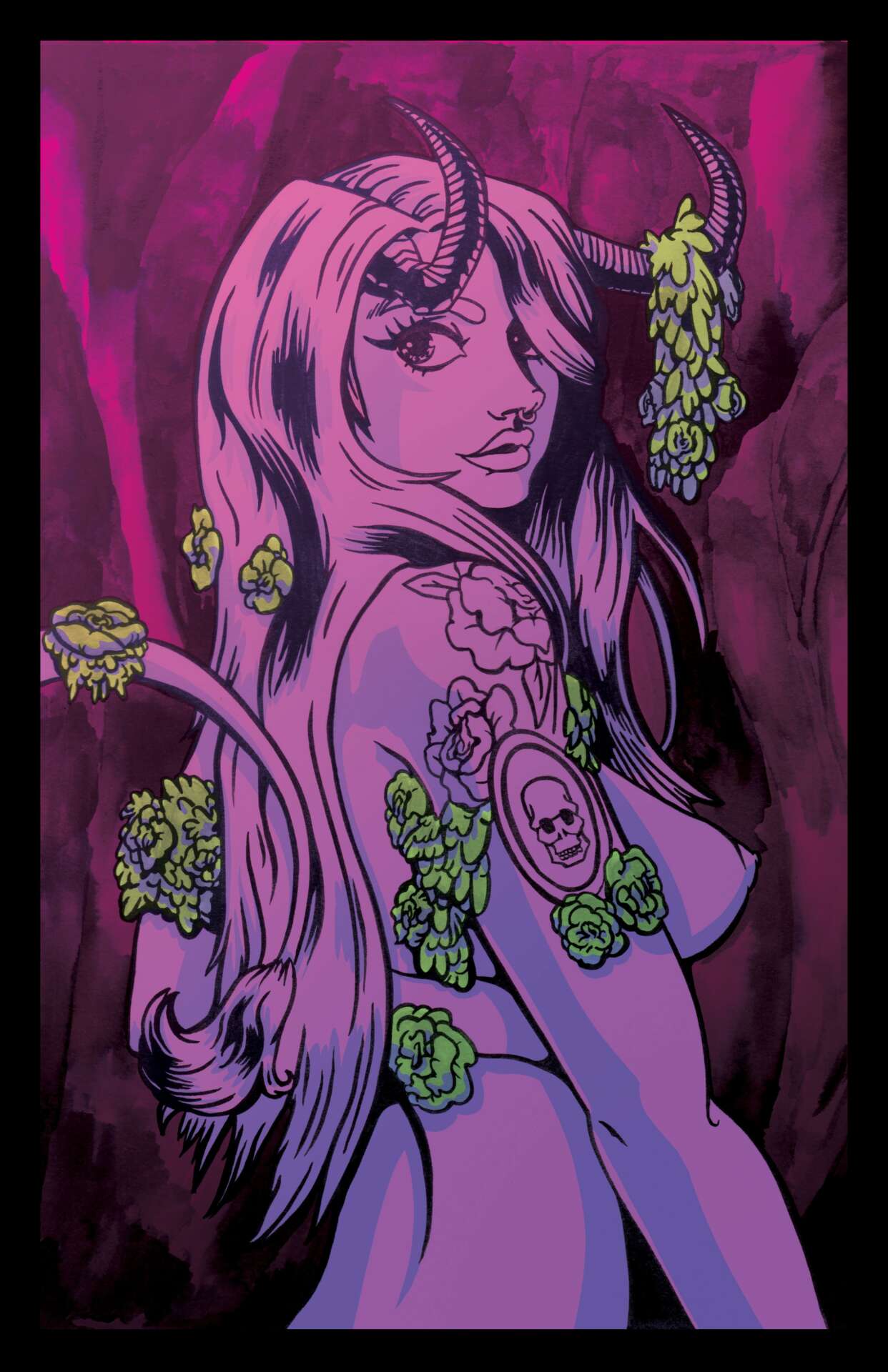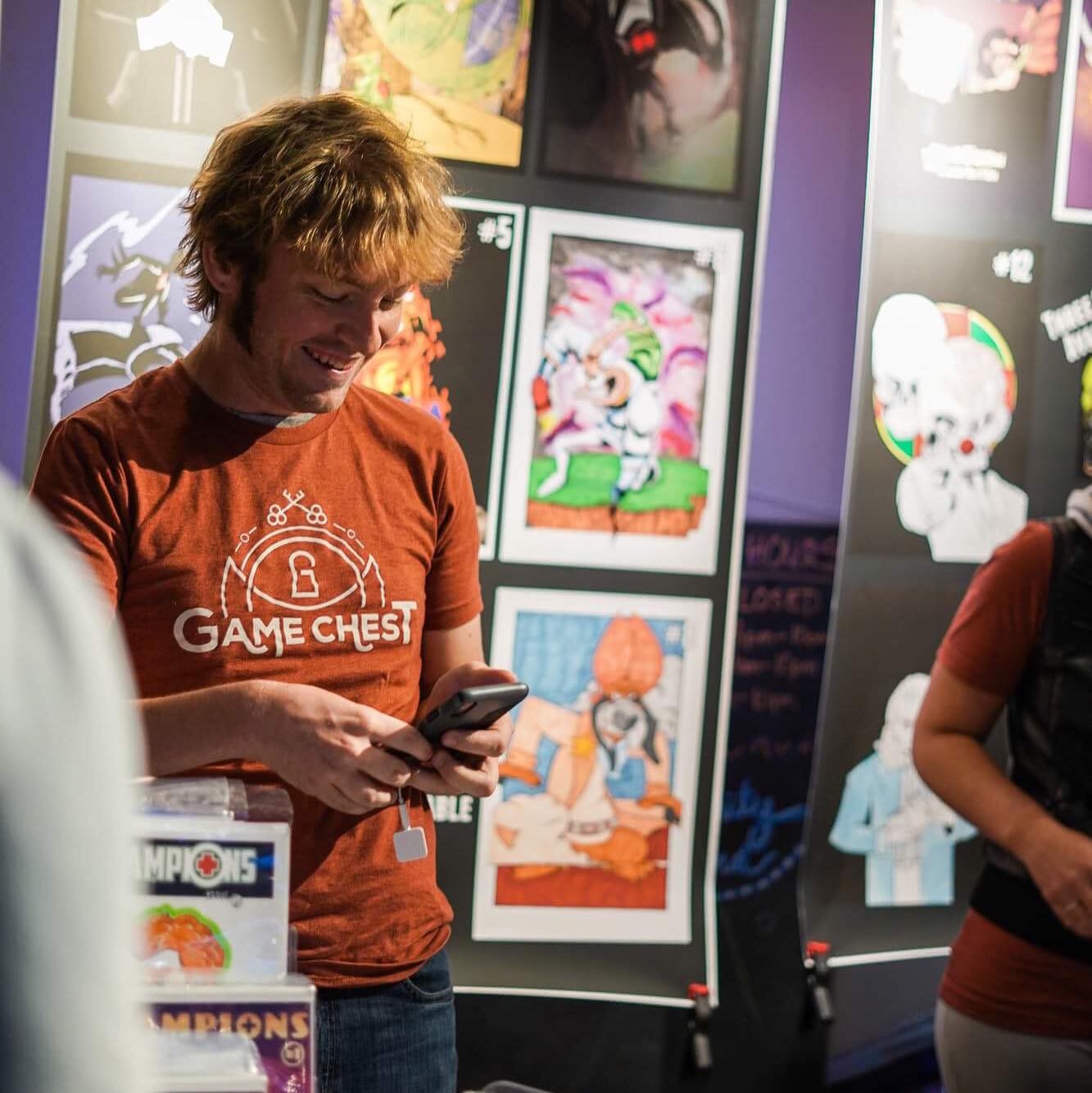We were lucky to catch up with Dylan Jacobson recently and have shared our conversation below.
Dylan, thanks for taking the time to share your stories with us today Are you happier as a creative? Do you sometimes think about what it would be like to just have a regular job? Can you talk to us about how you think through these emotions?
Am I happy as an artist or creative? That’s incredibly difficult to answer. I’m someone who’s always grappled with depression and accepting a normal life. It’s hard to know if my happiness would be more or less in a regular job. This question is something I’ve chewed on so much that I’ve started writing a regular newsletter discussing struggles and successes as a creative person. (https://brimstonegoodfight.substack.com/) Sure, there are moments where I romanticize more regular jobs because they offer something simpler, easier insurance, or just something different. Those moments are cut short when I remember the dissatisfaction I had with my variety of normal jobs. I was brought up to be fairly independent, which plays heavily in my desire to work independently as a creative. Happiness, I think, is something that is found in specific moments and instances that isn’t intrinsically linked with what I do for a living, even if that job does make an impact.



Awesome – so before we get into the rest of our questions, can you briefly introduce yourself to our readers.
When talking about getting into the creative field, I often get asked if I have always been an artist. Of course, I’ve always drawn. I made silly comics as a kid, I doodled and dreamed, but I didn’t create with a goal of being an artist until late in my high school years. Throughout college, I explored filmmaking and comics as a form of storytelling, something I discovered I wanted to be involved with. After college, a friend and I were so hellbent on being filmmakers, we started a tiny film company doing minor film work such as training videos for local businesses in order to create out own narrative content. Narrative filmmaking proved itself expensive, and I had been developing comics in the background. Because of this, I made the switch in 2015, in order to focus on my career as a illustrator.
Amidst filmmaking and comics, I was working full-time as a copywriter, editor, and project manager at a web design company. My career in formal web design ended with a structure fire that led to sweeping company layoffs. Due to these circumstances, and putting my emphasis on illustration, I pursued the work full-time. I beefed up a growing Patreon, and began releasing artwork online as regularly as possible. Nailing down clients as a new artist was challenging. Due to that, and working to expand my audience, I started tabling at events and working with arts councils. Both of these proved crucial in growing as an artist.
I am someone who loves creating my own characters, stories, and other content, I am still exploring how best to represent my work at shows. Comicons can be volatile for creators who aren’t on top of the hot thing. It’s cosmically funny how being a novel creator in these spaces can speak doom to the event. However, that doesn’t mean I don’t think you shouldn’t pursue comicons if you’re more unique. What I’ve discovered at these shows is that, if you’re going for novelty, you have to lean into that and embrace your strengths. Heck, you should even explore art festivals, monster festivals, and any off-beat event that might take you. Sometimes setting up in the back of a bar can be one of your most lucrative events.
When it comes to working with arts councils, I work closely with Artists in Schools and Communities teaching artist rosters. Spreading the principles and techniques of comics is something I focus on with these organizations. Currently I work in South Dakota, Nebraska, and Iowa with their arts councils. It’s not something that keeps me persistently busy, but it is an opportunity to hone my speaking skills, and give back to the community in a way that pays. Not to mention that it adds tons of credibility and evidence to a creative resume.
While balancing creating my own work and traveling for these broad events, I find time to broadcast on Twitch and to write a Newsletter. Finding ways to interact with people is critically important. I find success in leading viewers and readers to a community Discord where interacting can be casual and more relavant.
Over the course of all this, people I meet and work with often evolve into clients. I have worked on board games for Environmental Issues Instruction from Upper Iowa University, thanks to being introduced to their leadership by my wife. I’ve created numerous character art commissions for followers, fans, and friends. I’ve also found work in comics for organizations in my region, as well as posters and advertisements.
It’s a big task managing a robust portfolio of events and works, but its the only way I could have found success in projects like my $10,000 Kickstarter campaign to finish my comic series, Champions!


We’d love to hear a story of resilience from your journey.
As I mentioned previously, I have had several ups and downs when it comes to conventions, specifically comicons. These events stand to put fans in front of creators they already love. That means, making a splash with new content can be daunting. This is why so many artist alley folks just draw characters you already know. It’s the same as a new band playing all the hits. It makes sense. However, my first year at a big show, Planet Comicon, had me leaning hard on my own work. I brought out a comicbook I’d made and 40 of four different prints I’d made. Located in Kansas City, Planet Comicon is not the cheapest event to attend. Over the three days, I made back about half my investment in the table and trip, and I was devastated. I thought people hated me. I thought I was a hack. Yes, I had a lot of creative growth to undergo. But I was overwhelmed by that failure. It was enough to almost end my career. But I want this, and the people who did care at that time wanted to see me succeed. I won’t deny that working through this event was hard. I put myself back to work, though. I talk about the challenge that was, and I try to learn from it. The failure doesn’t define me, I define me.
Years later, I have had great shows, and bad shows. Planet Comicon has had much better years since. If you’re going to put all new content out into the world, you’ve got to collect your bumps and bruises and move onto the next thing. Who knows what success that might bring.
What’s the most rewarding aspect of being a creative in your experience?
This is going to be brief, but it’s something I love. I love creating a body of work, then putting it away for several months before seeing it again. After creating a 24 page comic book it can seem less impressive when its done than you expect. That is, until you’ve had a break from it. At least for me, there’s magic in seeing it again two months, six months, or even years later. The break refreshes the mind and lets me see my work in a new way, and helps me look at it from new, critical perspectives.
Contact Info:
- Website: https://bio.site/dylanjacobson
- Instagram: https://www.instagram.com/thedylanjacobson
- Facebook: https://www.facebook.com/BrimstoneStudios
- Twitter: https://twitter.com/dylanjjacobson
- Other: https://www.inprnt.com/gallery/brimstonestudios/
Image Credits
All art work is created by me, Dylan Jacobson. The street art photograph is by Cathryn Carney


